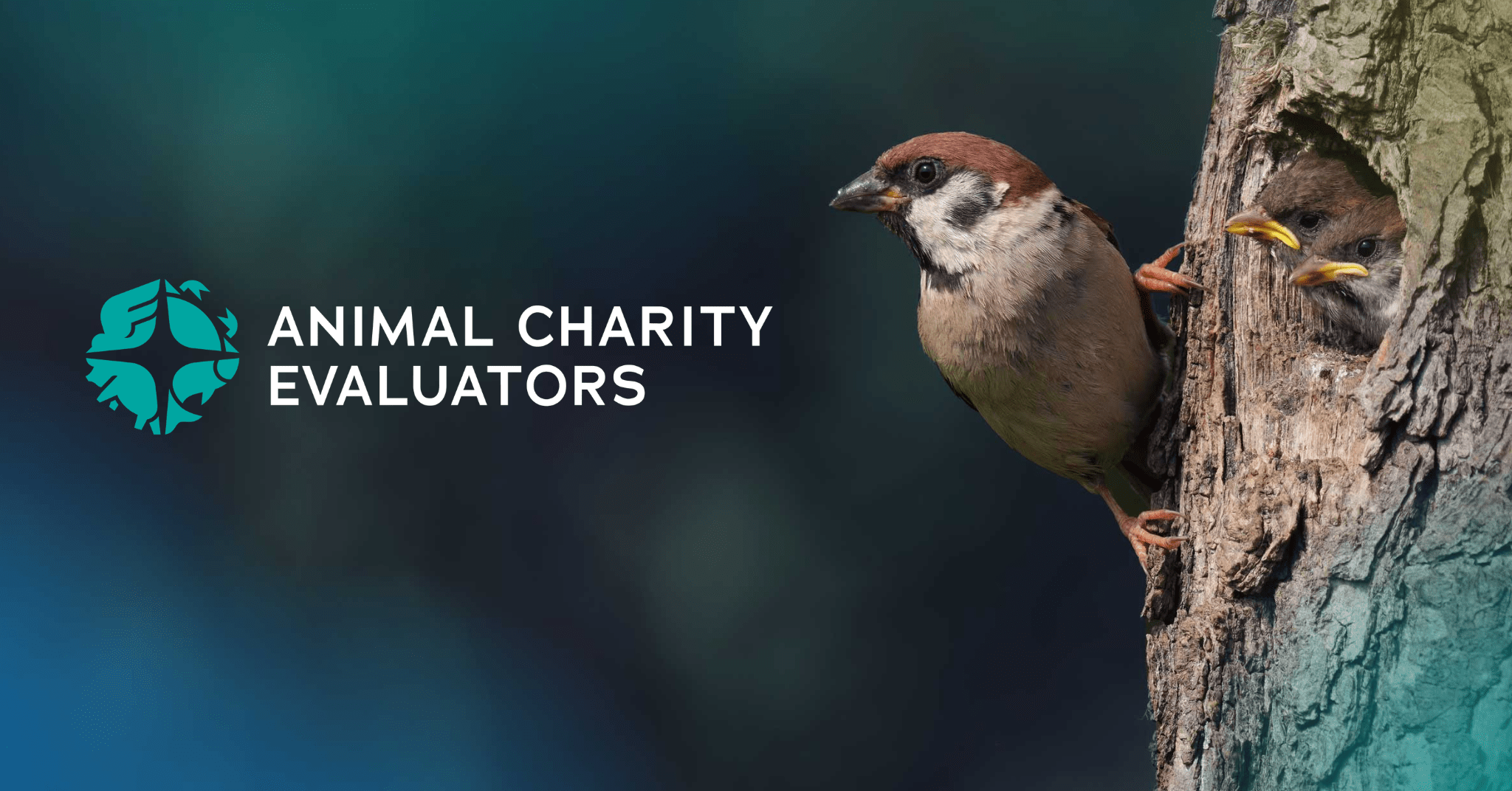Hi! We're researchers from Animal Charity Evaluators (ACE), and for the next two hours, we'll be answering questions about our 2024 charity recommendations and our charity evaluations process.
Our team answering questions is:
- Elisabeth Ormandy, Programs Director
- Vince Mak, Charity Evaluations Manager
- Maria Salazar, Senior Researcher
- Max Taylor, Researcher
- Zuzana Sperlova, Researcher
How to participate? Make sure you've created a FAST Forum account and post your questions in the comments section.
We look forward to answering your questions!
For a limited time, all donations to our Recommended Charity Fund will be matched! Your support will help all 11 of our Recommended Charities that we estimate will have an exceptional impact for animals with additional donations. Thank you for your support and for caring about creating a kind world for animals.




Thanks Steven, great question! In short: yes we do, and no there isn’t :-) We think GiveWell’s approach of using GiveDirectly as a benchmark makes sense for GiveWell, and we’ve had several team discussions about whether we could take a similar approach. One step in this direction is to seek to get to the same unit of animals helped/suffering averted for each charity to make it easier to compare across charities, and we’ve sought to do that this year through our use of AIM’s Suffering-Adjusted Days (SADs) model. (You can read more about our 2024 cost-effectiveness assessments here.) However, while we found this helpful for this year’s Evaluations, it’s not always possible to reach a meaningful SADs estimate given limitations such as the long-term or speculative nature of some charities’ programs, a lack of reliable data around charities’ achievements, a lack of evidence on the relative cost-effectiveness of different animal advocacy interventions, and the diverse range of programs conducted by the charities we evaluate. We’re also not aware of any charities in the animal advocacy space that share GiveDirectly’s room for additional funding and potential for scaleability.
Instead, we currently base our recommendation decisions on a set of decision guidelines that align with our evaluation criteria (see here for the guidelines and additional context), and use these to score charities against one another. It’s possible that in future a sufficiently scalable charity will emerge, and the animal advocacy movement will have sufficient evidence and data for us to produce reliable cost-effectiveness assessments for all the charities we evaluate, but at the moment this doesn’t seem realistic.
Currently, our Recommended Charities are those we’ve identified as the most impactful giving opportunities for animals based on the information we have available. Considering each of our Recommended Charities have significant room for more funding, for those looking for impactful donation opportunities, we suggest donating to our Recommended Charity Fund that supports all 11 of our Recommended Charities and where gifts are currently being matched.
— Max